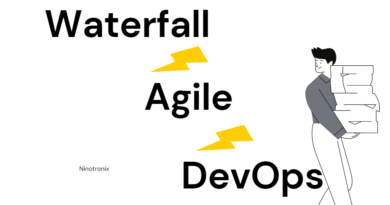Introduction to salt stacks
Salt is an open-source, Python-based configuration management and remote execution tool that helps automate infrastructure management and application deployment. It is commonly used in DevOps environments to manage servers, cloud infrastructure, and container clusters.
Salt consists of a master server that manages one or more minion servers, which are the systems being managed. The master communicates with the minions over a secure ZeroMQ messaging protocol and executes tasks using Python-based modules called “states”. The states are used to describe the desired state of the system and include tasks such as installing packages, modifying configuration files, and managing services.
Some of the key features of Salt include:
- Fast and Scalable: Salt is designed to be fast and scalable, even when managing large numbers of servers or containers. It uses an event-driven architecture that allows for near-real-time communication and execution.
- Flexible: Salt is highly flexible and customizable, with support for a wide range of operating systems, cloud platforms, and container technologies. It also includes a rich set of modules and plugins that can be used to extend its functionality.
- Secure: Salt includes a number of security features to ensure secure communication between the master and minions, including SSL encryption, authentication, and authorization.
- Modular: Salt’s modular design allows for easy integration with other tools and systems, including popular DevOps tools such as Ansible, Docker, and Kubernetes.
- Open-Source: Salt is an open-source tool that is free to use and can be easily modified and extended by the community.
Here are some examples of how Salt can be used in a DevOps environment:
- Configuration Management: Salt can be used to manage the configuration of servers and applications across multiple environments, ensuring consistency and reducing errors. This includes tasks such as installing packages, configuring services, and managing firewall rules.
- Infrastructure Automation: Salt can be used to automate the deployment and scaling of infrastructure across multiple cloud platforms and container technologies. This includes tasks such as provisioning new instances, managing load balancers, and configuring auto-scaling groups.
- Continuous Deployment: Salt can be used to automate the deployment of applications and updates across multiple environments, including development, testing, and production. This includes tasks such as building and deploying containers, configuring load balancers, and rolling out updates.
- Monitoring and Reporting: Salt can be used to monitor the health and performance of servers and applications, and generate reports on system status and resource usage. This includes tasks such as monitoring CPU and memory usage, tracking network traffic, and generating system logs.
In summary, Salt is a powerful DevOps tool that can help automate infrastructure management and application deployment across a wide range of platforms and technologies. With its fast, scalable, and flexible architecture, it is well-suited to modern cloud-native environments and can help organizations achieve greater agility, reliability, and security in their operations.




